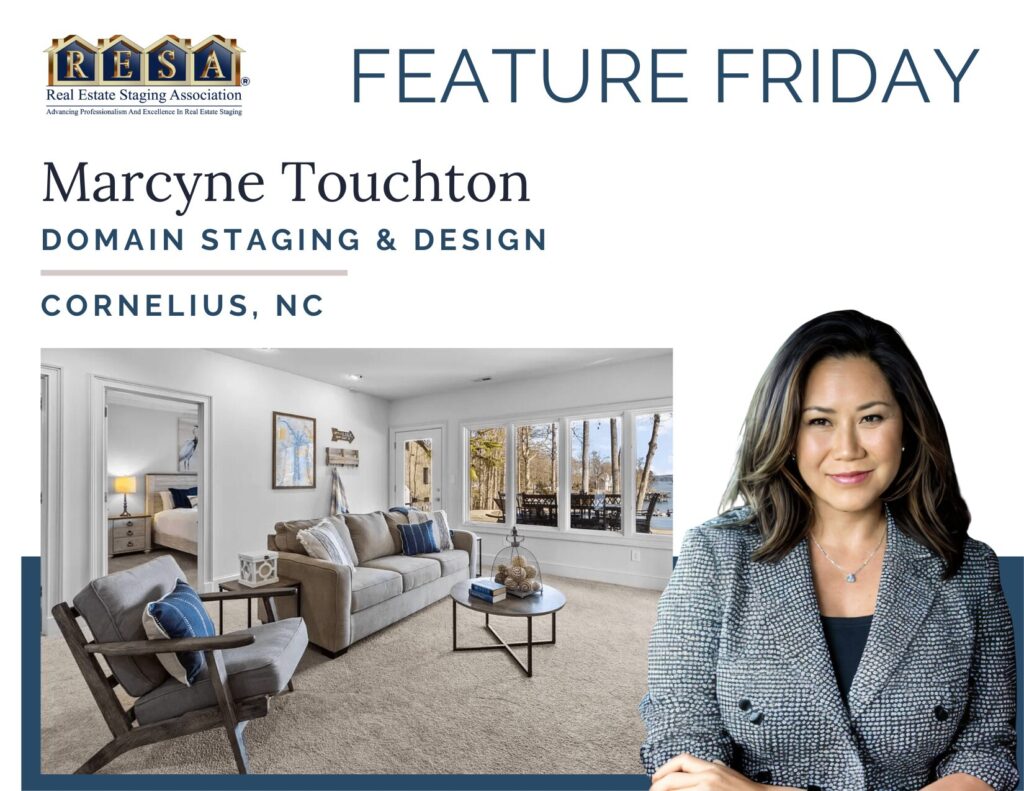RESA® member, Marcyne Touchton started Domain Staging and Design in 2006, before many people even knew what home staging was. Marcyne continually strives to educate herself as well as consumers and agents alike on trends, latest technology, anything to help her stand apart.
Home staging is different from designing a home. Staging is decluttering and neutralizing, whereas designing is personalizing. We do our best effort to neutralize without making it lackluster. Color and scale are critical components and at the end of the day, it is a beautifully well executed design.
Marcyne has won many awards, most recently, she was awarded from Home Builders Association for best remodel in 2023. She has been featured on various tv outlets and won the Kirklands, My Designer National Award when they had a national spokesperson role.Domaine offers a full array of services, from consultations to a full concierge service, for our out-of-town guests.
We are passionate about bringing value to our client’s property, value to their experience with us, and value to the most cherished commodity of all, their time.
The Home Stager’s Perspective: A Conversation with Marcyne Touchton
They are constantly doing their part in educating consumers and real estate professionals about the benefits of home staging.
Q: What inspired the beginning of your staging journey?
Marcyne: I started back in 2006, when home staging was not widely known about. I had a designer friend from the West Coast tell me that I would make a great home stager.
It was really a God-inspired journey, as my husband ended up landing a client, several months later, who was Barb Schwarz, a pioneer in home staging. I fly out to the West Coast, and got my training from her, and then ended up serving on the international level as Director of Marketing, and we’ve been friends ever since!
Q: Take us back to your very first day on the job as a home stager. What were your feelings, expectations, and the most memorable moments from that day?
Marcyne: I was very scared because I didn’t know that I had to first sell my services, to be able to do what I love doing, home staging. I came out of my shell, started talking with real estate agents, and slowly got my start.
My kids most memorable moment, was the first month I started. They came home only to find no where to sit as I had borrowed our sofa, and dining room set. We played “picnic” many days.
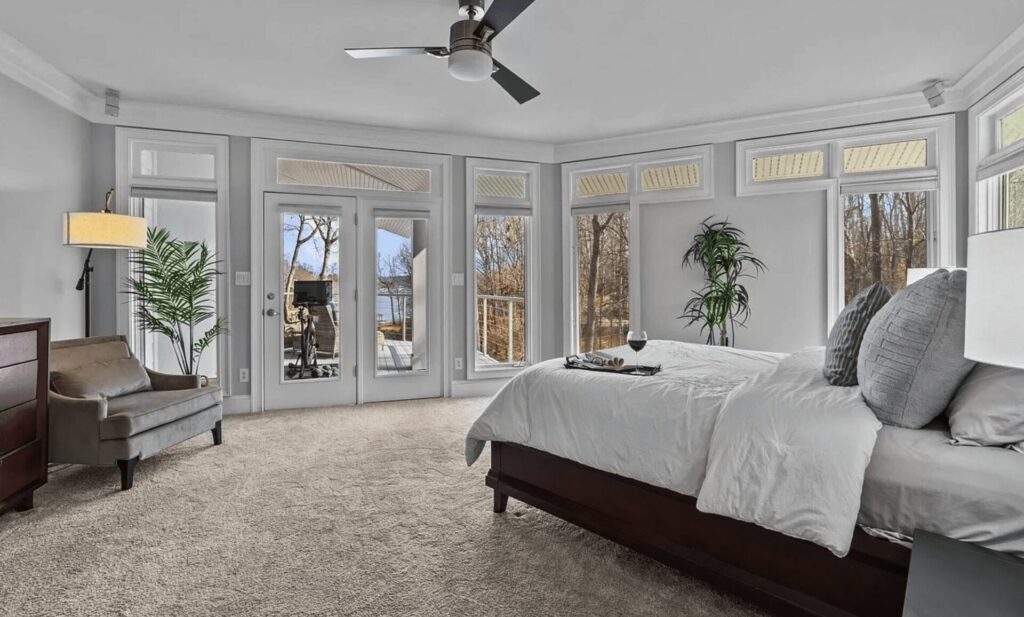
ALL PHOTOS PROVIDED BY DOMAIN STAGING & DESIGN
Q: How has your perception of the staging industry evolved since you started?
Marcyne: It is through associations such as RESA® that elevates and educates the consumers and real estate professionals alike. When I started out, I had to constantly educate what home staging is.
Now, that the road has been paved by Barb Schwarz, and shows about real estate on tv, it is now about distinguishing myself from my competitors.
Q: Would you share some insights into your creative process? Where do you typically find inspiration for your staging designs, and how do you translate that into your work?
Marcyne: I am constantly looking at magazines, even sometimes Pinterest and Instagram. As the trends change frequently, I have to be in the know.
I am constantly investing in education to find ways I can maximize returns for my clients, and go to the industry furniture market, twice a year.
Q: Prior to entering the staging industry, did you have a different career path or profession? How have the skills and experiences from your previous career uniquely equipped you for success in the world of staging?
Marcyne: I studied fashion design, at VA Commonwealth University. I had to learn about colors, textiles, so that has helped a great deal in being able to co-mingle different textures with blending the right colors to bring the house to life.
Q: Can you recall a particularly challenging staging project? What obstacles did you face, and how did you overcome them? What did you learn from that experience?
Marcyne: It wasn’t really about the staging that was challenging, it was the client. He wanted me to do everything for nothing. Then, he was bullying and making threats on giving me a bad review, if I didn’t go the extra mile.
I decided that my integrity and respect was far more important than trying to get one good review, and that was further fueled by not wanting to submit my staff to his negative behavior. What that taught me was invaluable. You can fire your client, and not compromise.The client did back peddle when he knew he couldn’t bully us, and apologized. We accepted, and stood our ground and did not stage with him. Now I learn to manage expectations upfront and let clients know what our policies are.
Q: Staging often involves collaboration with real estate agents. Could you share some insights into how effective communication and partnership between stagers and agents can lead to successful property sales?
Marcyne: The real estate agent who helped us on this house was instrumental in helping it sell faster and for more money.
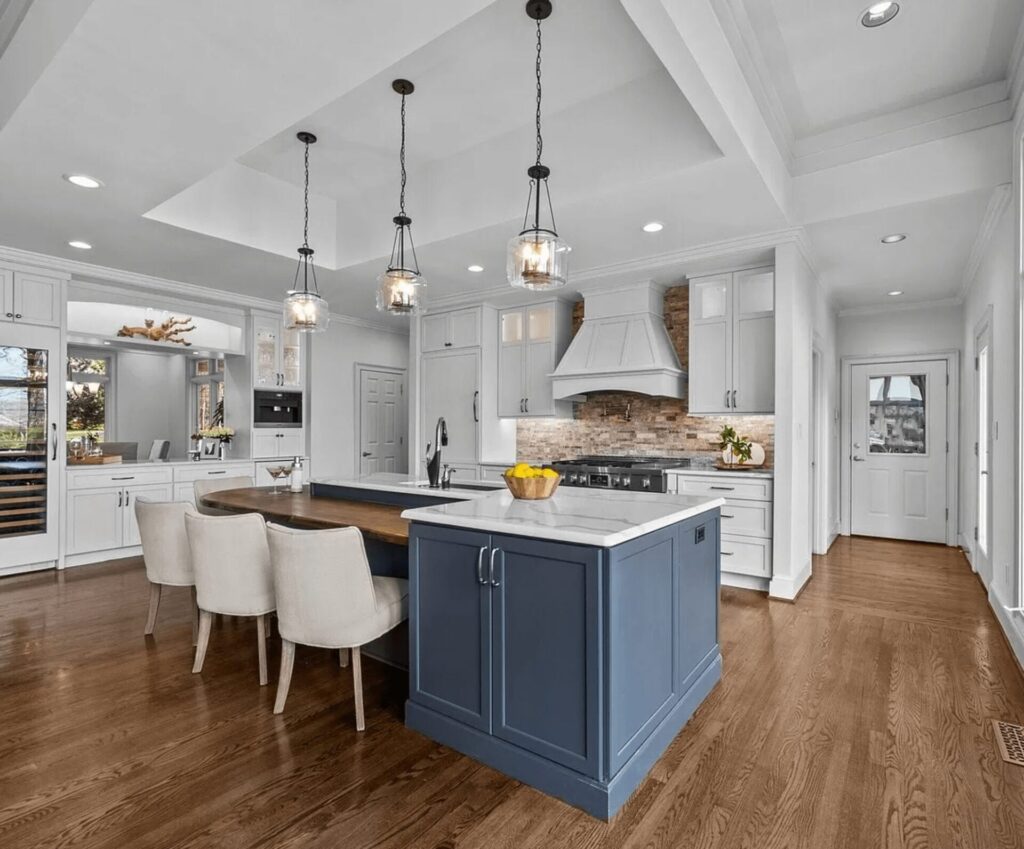
She advised us as to what the feedbacks were. She helped us figure out a timeline as the clients were very busy executives and rarely home. For photography day, she actually knew we were short on time, with a deadline we bent over backwards making, so she even helped pick up some live potted flowers.
Q: Staging can transform a property, but it’s not just about aesthetics. How do you balance design principles with the practical aspects of making a home more marketable?
Marcyne: Home staging is different from designing a home. Staging is decluttering and neutralizing, whereas designing is personalizing. We do our best effort to neutralize without making it lackluster. Color and scale are critical components and at the end of the day, it is a beautifully well executed design.
Q: Could you share a memorable success story where your staging made a significant impact on a property’s sale price or time on the market? What were the key elements that contributed to that success?
Marcyne: The home staging was the KEY factor. Not the updated tiles or remodeled bathrooms. They were stunned that the only difference that helped them finally sell their home, after it was on the market for 1 year, was the staging. It is the most important marketing efforts in selling a home. Home staging is the key differentiator.
Q: Beyond aesthetics, what do you believe are the most important qualities or skills that a successful home stager should possess? How have these qualities shaped your own career?
Marcyne: I think great communication skills are very important in this business. Everyone from your vendors, to clients, to working w/agents.
The right tools, whether it is software programs that help you design a board, put together a proposal, to billing, to making sure everyone is on the same page in terms of project management. They can make you or break you. It’s all about the end user experience from beginning to end.
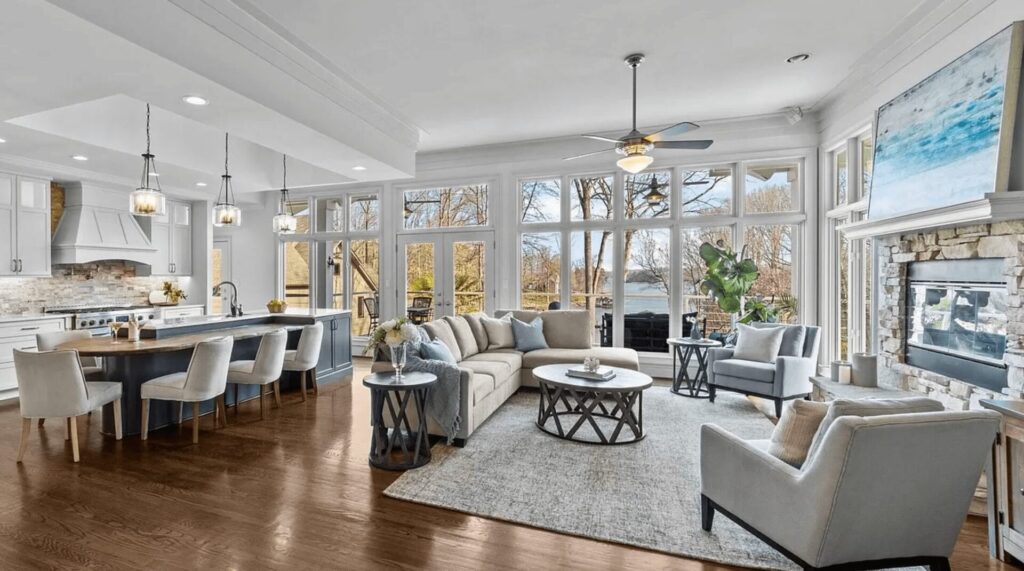
Q: If you could stage a home for any celebrity, living or historical, who would it be, and what kind of design theme would you choose for their home?
Marcyne: I would love to design a home for someone like Bob Mackie, where we can be tastefully borderline garish, but incorporate some grounding techniques so its not too jarring.
Q: In the world of home staging, sometimes surprises happen. Could you share a funny or unexpected moment that occurred during one of your staging projects? How did you handle it?
Marcyne: In our earlier days, we had staged an uptown swanky condo penthouse. Our client was an investor out of town, so when he came to visit, he called us and asked, “why would you stage w/ashtrays, and put empty beer bottles on the table?” I reassured him it was not our doing. We went back and figured out someone was using our staged condo for their pleasure. After weeks of investigating, he found out that there was a doorman who was using our staged condos to woo the ladies.
Q: Imagine you could time travel to any era in history to stage a home. Which time period would you choose, and what elements from that era would you incorporate into the design?
Marcyne: I do love the prohibition era. Dark, swanky, warm vibes. I actually have taken all the elements and successfully designed my personal home. I even created a SW paint color to reflect the time period called, Marcyne’s Moody Black. It is a perfect combo of blue and green and black.
Q: If you could collaborate with any famous interior designer or decorator, living or deceased, on a staging project, who would it be and why? What do you think you could learn from them?
Marcyne: I think there are so many talented designers, and some who aren’t even famous. I could always learn something I found out, even if they are just starting fresh.
Q: Home staging is a competitive field. What advice do you have for other staging professionals looking to stand out in the market and build a strong client base?
Marcyne: Figure out who your ideal client is. Make an avatar – figure out where they shop, what clothes they wear, who they hang out with, what they eat… and start marketing to that person.
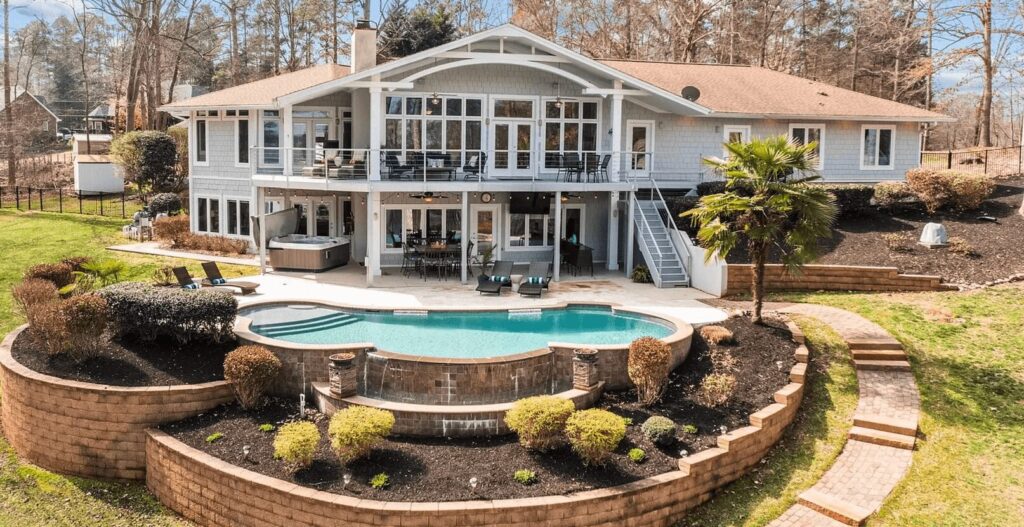
Q: Balancing creativity with the demands of running a business can be challenging. What tools or systems do you use to manage your staging projects efficiently and stay organized in your daily operations?
Marcyne: Great software programs. It is the one major thing, everyone needs! It can help make you look super polished, or break you, and client will have a horrible experience from the get-go.
It also helps us stay organized, and allows us to bill, shop, do all the things that allow us to work more efficiently and stay on top of our projects.
Q: What are some common misconceptions or objections you’ve encountered about home staging, and how do you educate potential clients or naysayers about the benefits it brings to the selling process?
Marcyne: That home staging is about changing out pillows. They do not know about balancing out the house, color concept, scale… I could go on and on.
I actually had a mechanic where I was waiting for my car to get repaired, ask me, so can my wife help you? She would love that. She just had a baby, but she could bring the baby with her to help out. Can you believe?!
Q: Client testimonials and reviews can build trust with prospective clients. How do you encourage satisfied clients to share their positive experiences, and how has this influenced your ability to acquire new clients?
Marcyne: Yes testimonials are amazing and the cheapest and most effective marketing tool there is. We built our brand on referrals and by word of mouth.
We used to send them a gift card for coffee or something, but now, we just ask, and if they are really happy with the outcome, they will happily do it.
Q: How can real estate agents better communicate the value of staging to their clients, and what role can they play in making the staging process smoother and more effective?
Marcyne: I think agents, themselves, don’t know exactly what staging is. They think they know but they wouldn’t be able to talk to the client with as much information as a professional would.
I just ask that they make the introduction. That way, they are not worried about saying the wrong thing, and it puts us in front of the client.
You can learn more about Domain Staging & Design at https://domainestaging.com/
- Messy Branding, Messy Business: Key Takeaways from Laurie Graham’s Webinar - February 24, 2025
- Key Takeaways from Holly Gosa’s Exclusive RESA® Webinar - January 8, 2025
- Ultimate 2025 Success Plan for Stagers: Insights from Marianne Cherico - December 28, 2024

